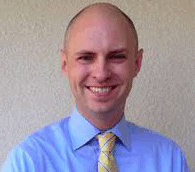by Randy Demary
What a difference a week makes! As a hospice chaplain, I’m constantly on the go, generally driving 400 miles or so each week, visiting patients up to an hour away from my home. But today, instead of grabbing my backpack full of the electronics and office supplies that turn my Prius into a mobile office, I’m working from home under a “shelter-in-place” order and participating in care conferences by phone as one nursing facility after another has shut their doors to all nonessential healthcare workers (that’s me). Several won’t even allow my colleagues who are nurses to enter.
Chaplains must make peace with—and even specialize in—working with, in, and around the really hard stuff of life that usually comes up a lot less often for other ministers. And while there is always some amount of crossover with parish-based ministry, in this time of pandemic there is suddenly much more.
I would like to share two tips for ministry during these unusual circumstances. I believe the Church has a key role to play in helping both individuals and society at large find their way through the present crisis.
1) Develop a non-anxious presence.
Anyone who’s been around C4SO for long will know this to be one of Bp. Todd’s favorite exhortations. It is also something of a mantra for chaplains. In the midst of trials and upheaval, people need to know that someone has it together—that there’s someone behind the wheel and the car isn’t careening toward a cliff without a driver to steer it in a safe direction.
This isn’t about simple proximity, which is becoming more difficult by the day. I mean availability and relational connectedness with those in the thick of the chaos. It’s harder than you might think. Doing so requires you to deal with your own anxieties and broken places, at least to the point that you are in control of them—not they of you. This allows you to not merely appear to be a non-anxious presence as if putting on a mask, but to actually incarnate one.
As you begin to embody a non-anxious presence, those you serve will be more at ease simply by your disposition, even if you aren’t able to offer any other intervention. Quite literally, sometimes all that is needed is showing up!
2) Make room for suffering.
Once I visited the wife of a pastor as her husband lay unconscious in the ICU following a heart attack. When I asked how she was faring, she responded, “I’m good. Praise the Lord!” Really?? I’m good. Praise the Lord?
Far too many Christians have been told, explicitly and implicitly, that following Christ is incompatible with so-called negative emotions. “I have faith in God!” they say through a forced smile, believing this to be the requisite depiction of faith during hardship. “The joy of the Lord is my strength,” they tell you, all the while denying the difficult—and yes, God-given—emotions just beneath the facade. You’d never know that the Christ they follow is a “man of sorrows acquainted with grief” (Isaiah 53:3). This destructive theology inevitably sets Christians’ faith on a collision course with the hard realities of life. It is not a substantive faith, and it will not support them in hardship.
In order for people to “grieve as those who have hope” (I Thes 4:13-14), they must be permitted to grieve. They need leaders who teach them that there are times to set aside Psalm 23 and its still, peaceful waters to instead pray Psalm 22: “My God, my God, why have you forsaken me?” Suffering people need to reflect on Jesus weeping and being “deeply grieved, even to death” (Mt 26:38) at Gethsemane. Once the tears have fallen, genuine smiles appear more easily.
I believe the Church has a key role to play in easing the pain many people are facing in these unprecedented times. May my brief suggestions—which are effective online as well as off—help equip you with confidence to minister faithfully to your family, church and community.

The Rev. Randy Demary is an experienced chaplain with a history of working in hospice & health care at large. He is skilled in Palliative Care, End-of-Life Care, Bioethics, Bereavement, Public Speaking, and caring for people of any or no faith tradition. Randy has a Master of Divinity (MDiv) focused in Ethics from Fuller Theological Seminary.

